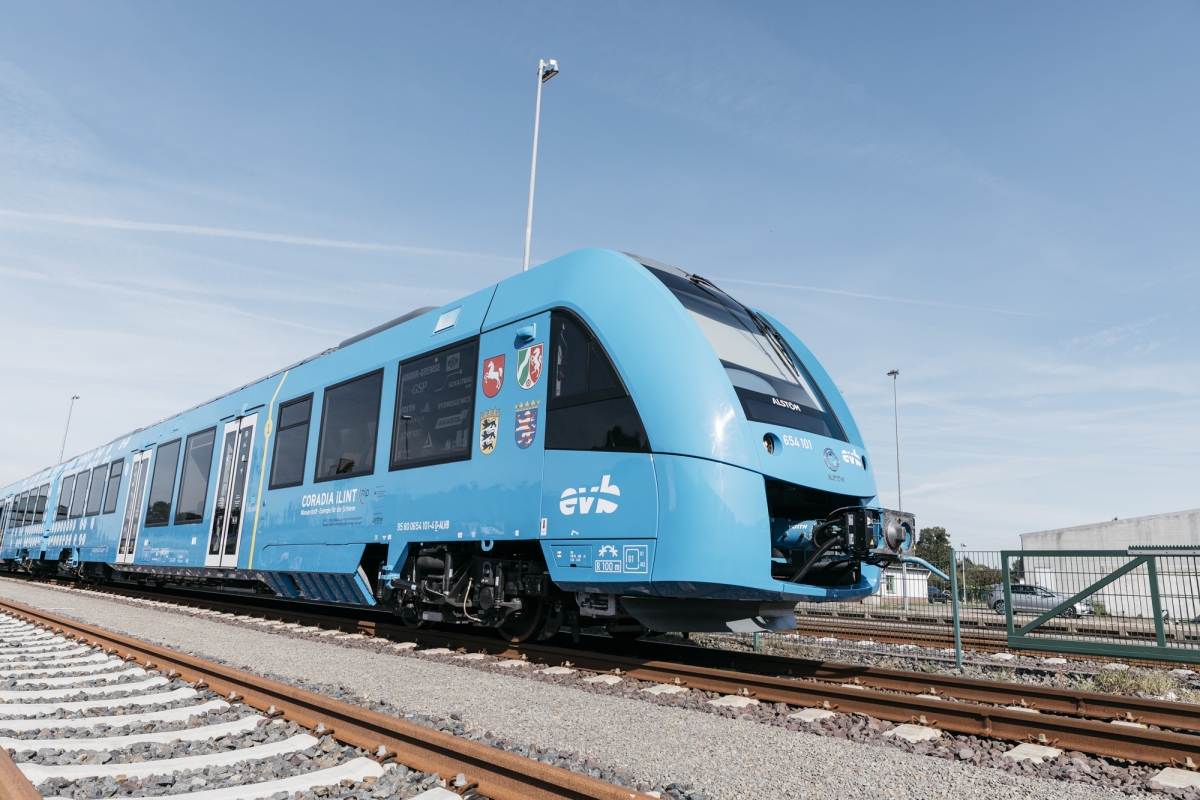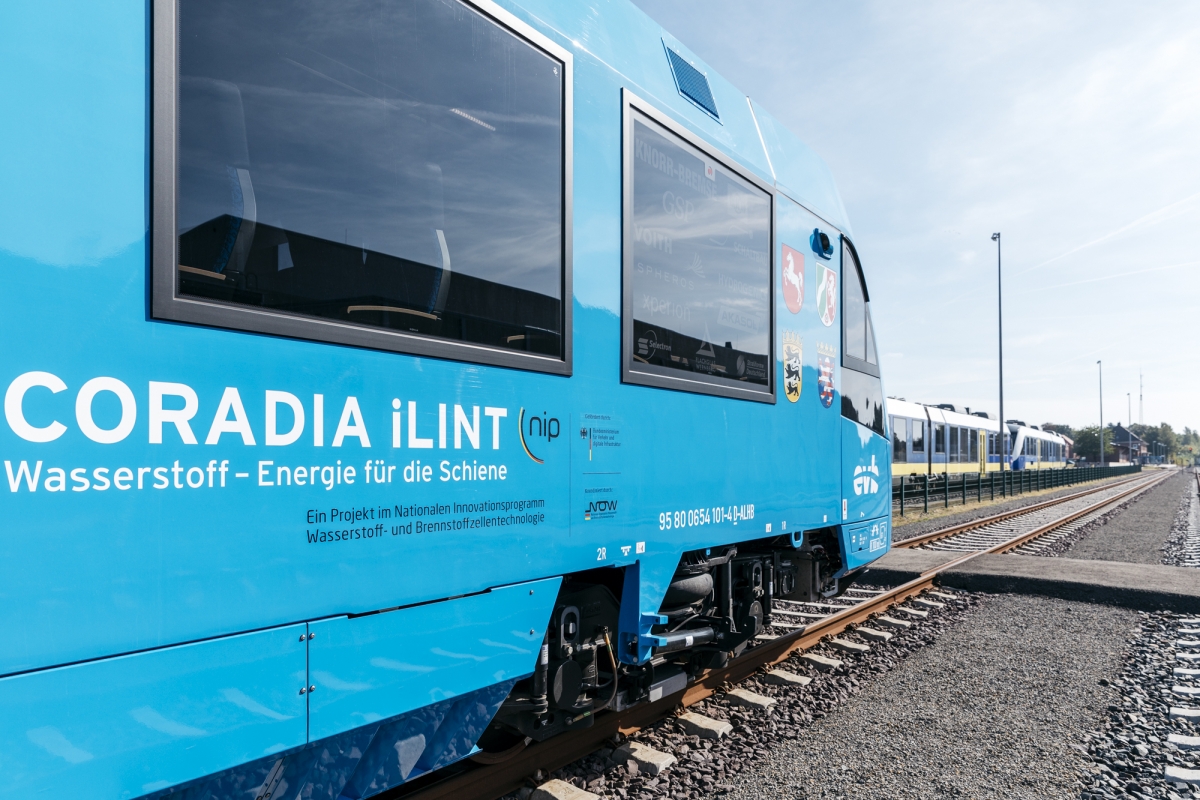Lower Saxony, a state in Germany's north west has started the world's first fully hydrogen-powered train service. The trains, built by Alstom, are reportedly less noisy, put out zero emissions, and travel about 1,000 km in just one tank of hydrogen.
The route covers a distance of about 100 km and the hydrogen engines can reach a top speed of up to 140 km per hour, notes a report by Futurism. Stefan Schrank of Alstom said that while the train is more expensive to buy when compared to a diesel train, hydrogen trains are cheaper to run.
Hydrogen fuel cells generate power by combining with oxygen, and they give out water while making electricity. So motors that run as a result are quite, unlike diesel trains that produce exhast smoke and are incredibly noisy. One of the drawbacks is that fuel cells are expensive. The platinum catalyst that splits the hydrogen into an ion and an electron has been highly expensive making the hydrogen fuel cells cost around $1,000 for every kilowatt of power they generated.
However, they do not need to be recharged like battery-operated vehicles, instead, their hydrogen tanks only need be filled. The report points out that it might not be too difficult to schedule the refuelling infrastructure, considering how efficient the German railway timings are known to run.
Trains are typically heavier and carry a lot more people than buses and cars, so transforming them into emission-free vehicles could do a lot more to reduce the carbon footprint of public transportation, notes the report.
As of now, there are two trains plying the Lower Saxony region and the company reportedly plans on adding 12 more hydrogen-powered trains to the fleet.
"The world's first hydrogen fuel cell train is entering passenger service and is ready for serial production," Henri Poupart-Lafarge, Alstom's chairman and CEO, said in a statement.
"The Coradia iLint—hydrogen train model—heralds a new era in emission-free rail transport," he added. "It is an innovation that results from French-German teamwork and exemplifies successful cross-border cooperation."
While this might be the first train to use hydrogen, there are several buses that are in regular use around the world powered only with hydrogen power. Aberdeen, in Scotland, for example, runs a whole fleet of hydrogen buses everyday.













